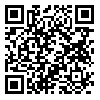دوره 11، شماره 3 - ( 5-1404 )
جلد 11 شماره 3 صفحات 0-0 |
برگشت به فهرست نسخه ها
Download citation:
BibTeX | RIS | EndNote | Medlars | ProCite | Reference Manager | RefWorks
Send citation to:



BibTeX | RIS | EndNote | Medlars | ProCite | Reference Manager | RefWorks
Send citation to:
Soriano G, Cruz C A G, Delos Reyes D C, Eduardo B P, Gabriel G M, Calong Calong K. Knowledge, Attitude, and Self-Efficacy towards Pain Management among Filipino Nurses. JCCNC 2025; 11 (3)
URL: http://jccnc.iums.ac.ir/article-1-720-fa.html
URL: http://jccnc.iums.ac.ir/article-1-720-fa.html
Knowledge, Attitude, and Self-Efficacy towards Pain Management among Filipino Nurses. نشریه مراقبت پرستاری مددجو محور. 1404; 11 (3)
چکیده: (69 مشاهده)
Background: Knowledge, attitude, and pain management competence and confidence (self-efficacy) are three significant variables influencing how nurses manage pain and the degree of relief offered to patients; however, research has yet to investigate these variables among Filipino nurses. This study aims to determine the relationship between knowledge, attitude, and self-efficacy in pain management among Filipino nurses.
Methods: The study is a predictive correlational inquiry with a convenience sample of 138 Filipino nurses in selected Level 3 hospitals in Metro Manila. Data were collected from January to March 2022 using the Pain Knowledge and Attitude (PAK) questionnaire and Pain Management Self-Efficacy Questionnaire (PMSEQ). Frequency, percentage, mean, standard deviation, Pearson's r correlation and backward stepwise linear regression were used to analyze the gathered data. IBM SPSS Version 21 for Windows was used for the analysis. The significance level was set at P<0.05.
Results: The participants had difficulty responding to the PAK Questionnaire, with scores of 0-9 (2.49 ± 2.11). Meanwhile, they scored well on the subscale "Evaluative Pain Management Self-Efficacy," ranging from 12-20 (17.19 ± 2.41). Their total Pain Management Self-Efficacy score ranges from 59-100 (85.45 ± 10.48). Significant relationships were found between pain knowledge and attitude and comprehensive pain management self-efficacy (r=0.214; p=0.012), evaluative pain management self-efficacy (r=0.176; p=0.039), and total pain management self-efficacy score (r=0.209; p=0.014). The regression analysis revealed that Comprehensive Pain Management Self-Efficacy and Educational Attainment significantly predict Pain Knowledge and Attitude. The model was statistically significant (F (2, 135) = 5.812. p=0.004) and accounted for 79% of the variance (R²=0.79), indicating a strong predictive relationship. However, no significant relationship was noted between pain knowledge and attitude and supplemental pain management self-efficacy (r=0.149; p=0.082).
Conclusion: Pain management needs to be emphasized among Filipino nurses as it is commonly practiced in the clinical setting. Further, it is recommended that regular pain management training programs be implemented to enhance their skills and improve patient care.
Methods: The study is a predictive correlational inquiry with a convenience sample of 138 Filipino nurses in selected Level 3 hospitals in Metro Manila. Data were collected from January to March 2022 using the Pain Knowledge and Attitude (PAK) questionnaire and Pain Management Self-Efficacy Questionnaire (PMSEQ). Frequency, percentage, mean, standard deviation, Pearson's r correlation and backward stepwise linear regression were used to analyze the gathered data. IBM SPSS Version 21 for Windows was used for the analysis. The significance level was set at P<0.05.
Results: The participants had difficulty responding to the PAK Questionnaire, with scores of 0-9 (2.49 ± 2.11). Meanwhile, they scored well on the subscale "Evaluative Pain Management Self-Efficacy," ranging from 12-20 (17.19 ± 2.41). Their total Pain Management Self-Efficacy score ranges from 59-100 (85.45 ± 10.48). Significant relationships were found between pain knowledge and attitude and comprehensive pain management self-efficacy (r=0.214; p=0.012), evaluative pain management self-efficacy (r=0.176; p=0.039), and total pain management self-efficacy score (r=0.209; p=0.014). The regression analysis revealed that Comprehensive Pain Management Self-Efficacy and Educational Attainment significantly predict Pain Knowledge and Attitude. The model was statistically significant (F (2, 135) = 5.812. p=0.004) and accounted for 79% of the variance (R²=0.79), indicating a strong predictive relationship. However, no significant relationship was noted between pain knowledge and attitude and supplemental pain management self-efficacy (r=0.149; p=0.082).
Conclusion: Pain management needs to be emphasized among Filipino nurses as it is commonly practiced in the clinical setting. Further, it is recommended that regular pain management training programs be implemented to enhance their skills and improve patient care.
| بازنشر اطلاعات | |
 |
این مقاله تحت شرایط Creative Commons Attribution-NonCommercial 4.0 International License قابل بازنشر است. |





